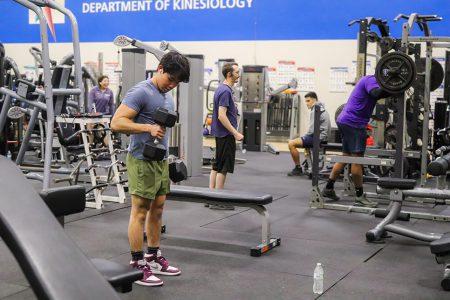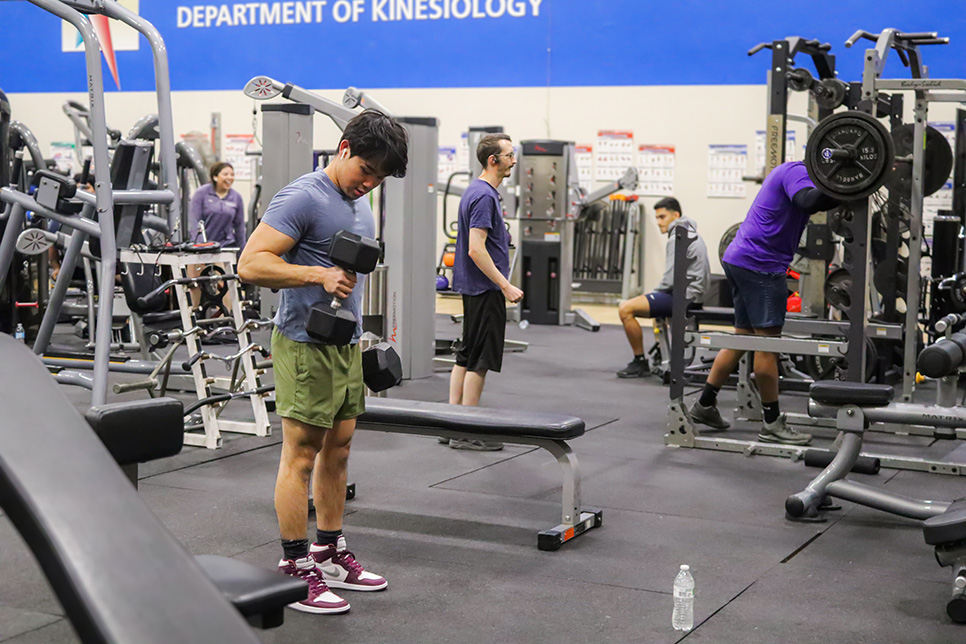
room. The room is available to any student or staff member with an ID.
Alex Hoben/The Collegian
Juan Salinas II
Campus editor
juan.salinas465@my.tccd.edu
Despite the efforts of previous administrations to focus on healthy lifestyles, Americans are still highly overweight.
The adult obesity rate passed 40% nationally for the first time, according to the 2017-2018 National Health and Nutrition Examination Survey, which is a 26% jump from 2007-2008.
Obese and overweight would be defined as excessive fat accumulation that presents a risk to one’s health. A body mass index over 25 is considered overweight, and over 30 is obese.
“The bottom line for losing weight requires burning more calories than one consumes,” SE kinesiology professor Melissa Evans said. “However, cutting too many calories can cause muscle loss, which slows down your metabolism. The recommended way to lose weight is to cut out up to 500 calories per day and stay physically active.”
The keto diet, which revolves around foods with low carbohydrates and high amounts of fat, is the most popular in the U.S., according to the health website Supplement Place, which analyzed the most popular diet trends based on global Google searches.
“Many ‘fad’ diets are unhealthy, so people need to be careful,” Evans said. “If people have specific health issues, they should talk with their doctor before starting any plan, and certain health issues dictate specific dietary requirements. I encourage people to eat healthy for a lifetime rather than trying a fad diet because people go off the fad diet and right back to the behaviors that caused the problem in the first place.”
The term “fad diet” refers to diets that promise results in a short amount of time. Liquid-only diets, “weight loss” pills or diets that encourage eating one type of food are some examples.
“The diet itself will never work because of the way it is designed,” NW kinesiology instructor Grace Ellis said. “No fad diet can be sustained for a long period of time. Therefore, the weight loss itself is also short-lived. A diet will work when it is something that you can continue doing for a lifetime, but then it is no longer a diet, just the way you eat.”
Ellis had to learn about losing weight after the birth of her son.
“It was something new to me because I have never thought about losing or gaining weight before,” she said “I just always maintained my weight. I made sure that I took my son and dogs for a walk every single day for at least 30 minutes/day and watched what I ate. Over a course of time, I was able to lose the weight and develop a healthy habit of going on walks.”
Students can learn more about ways to manage their weight by taking KINE 1164 or 1338 and other kinesiology classes.

